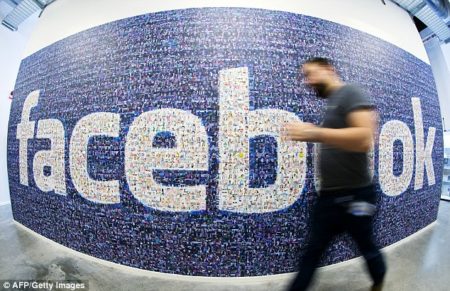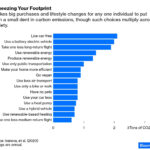January 21, 2020 – A college social media site started at Harvard, developed by a psychology major with a penchant for programming, is the background behind Facebook the social network colossus that is today the subject of so much controversy. I have been on Facebook for more than a decade. I first joined when I was researching the social networking phenomenon and how it could be used by small businesses. At the time I was publishing a small business tech blog with a heavy marketing emphasis.
Facebook was one of more than 100 social networks that I was researching at the time. When I first joined Facebook around 2009, and began to develop my profile I saw the potential of the network for knowledge sharing, for making people aware of global causes worth funding, and as a crowdsourcing and crowdfunding venue for technological inventions and scientific research.
Facebook started its rise to the top of the heap by 2009 when it reached 350 million subscribers worldwide. By 2012, that number had grown to almost a billion, and the company had gone public raking in billions. By 2017, Facebook had 1.7 billion subscribers, had swallowed news feeds, artificial intelligence, messaging, video, and virtual reality companies.
It had become the news source for hundreds of millions of its subscribers and a data resource for companies wanting to mine subscriber profiles. With over 2.5 billion subscribers, imagine the power of the message being broadcast across the social network, or the vast amount of personal data to be gleaned for third-party purposes. This outsized ability to influence subscribers and to turn their information into a tool for purposes beyond social networking has become a source of controversy.
A growing number of critics have recently accused Facebook of turning to the “Dark Side,” a term made famous by the Star Wars franchise. The most notable dark side event happened when Cambridge Analytica, an independent third-party, used Facebook personal data screen-scraped from peoples’ profiles to launch campaigns using targeted advertising in both the 2016 U.S. Presidential election and subsequently in the Brexit referendum.
Cambridge Analytica wasn’t alone. A series of “Dark Web” entities, many located in Russia and in Eastern European countries, mined Facebook data and fashioned numerous misinformation campaigns exploiting the social network’s’ flaws to influence political discourse, feed into social unrest, and disrupt elections, an outcome, I’m sure, never countenanced by Mark Zuckerberg when he first began to build the app in his Harvard dormitory.
Facebook, today, is the preeminent social network on the planet. It is also one of the largest purveyors of misinformation posed as news to billions of subscribers. The company leadership, from Mark Zuckerberg downward, appears blind to the misrepresentation of facts presented in Facebook ads and news feeds. Facebook seems equally blind to misinformation designed to reinforce prejudice and racial and ethnic divisions around the world.
It along with Twitter are social networking platforms equally culpable in spreading lies, misogyny, and hate. When platforms such as Facebook and Twitter shape political discourse and influence the relationships between people within and outside of countries they need to be scrutinized afresh because they are no longer passive repositories of subscriber content., but rather have become non-state actors influencing the internal politics and international diplomacy of nations.
It is no wonder then that the U.S. Speaker of the House, Nancy Pelosi, on January 16, 2020, described Facebook as “shameful,” and “irresponsible,” and as accomplices in the spreading of misinformation. In her New Year’s news conference she stated this about Facebook’s executives: “They don’t care about the impact on children. They don’t care about truth.”
She went on, “I think that what they have said very blatantly, very clearly, that they intend to be accomplices for misleading the American people with money from god knows where. They didn’t even check on the money from Russia in the last election. They never even thought they should.”
Pelosi’s portrayal of Facebook is as a purveyor of lies rather than the truth, and as a corporation focused on making profits regardless of the consequences of its acts.
The newspaper business has a name for news publications that are purveyors of lies and misinformation. The term is “yellow journalism,” coined to describe publications like those of the Hearst newspaper chain, often cited as being a purveyor of lies for profit. Yellow journalism still exists today, just look at the tabloids in the checkout line of your local grocery store. And there is the Fox News Network, yellow journalism on the air.
The imbalance of the Facebook media juggernaut when compared to prominent newspapers is worth a look. Here’s a quick revenue comparison.
- Facebook estimated revenue for 2019 – $70.2 billion.
- Washington Post – $709 million.
- New York Times – $428.5 million.
Both the Washington Post, and the New York Times claim to be advocates for truthful reporting and free speech. Facebook makes no such claim but does advocate free speech.
The two newspapers may, from time to time, be accused of reporting bias, but seldom do they get their facts incorrect. Facebook, on the other hand, doesn’t fact check anything. Facebook doesn’t vet its sources and doesn’t follow the rules that journalists abide by. Journalists of newspapers like the Post and Times are accountable for what they write. They are expected to verify, double and triple-check facts before they put them in print.
Then there is Facebook. It claims it is upholding free speech and no more. Therefore fake facts and disguised hate speech are okay on its site.
No newspaper can be accused of allowing a third party to take its content and use it the way Cambridge Analytica did with Facebook unbeknownst to its subscribers.
I continue to use Facebook to reach readers of this blog site. I also use Facebook in my charitable and volunteer work. I sometimes share my interests, and convictions with Facebook friends. But now I am starting to think that maybe my continued use of Facebook, and Twitter as well, needs a rethink. Maybe it’s time to say adios to these two social media sites that are proving to be more divisive than unifying in the way they are used today.
















